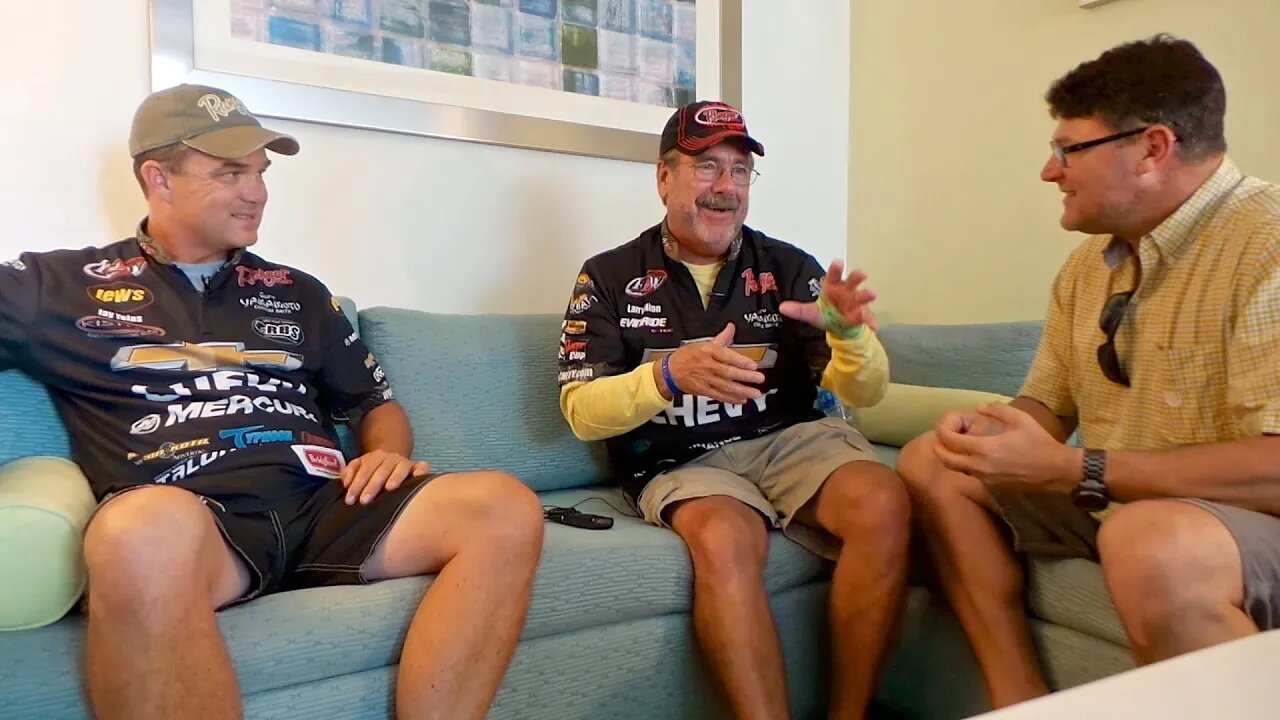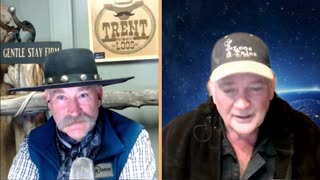Premium Only Content

Larry Nixon and Jay Yelas Talk Etiquette
This video was recorded back at the 2014 FLW Cup. At the time, I had an opportunity to talk with Larry Nixon and Jay Yelas about a number of topics about bass fishing. Hopefully you’ve watched some of those interviews from that day on the channel. The last conversation I had with them was regarding on-the-water-etiquette and how it’s changed over the years. The interview, although from 2014, is still pertinent today. Let listen to Nixon and Yelas talk etiquette.
Here’s a scenario. You’ve spent 3 days practicing for an event and have located a number of good spots that are holding fish. The first day of the event starts and you head to your best spot, an offshore ledge that only yesterday was holding what you think are the winning fish. As you approach the spot, you see another angler sitting smack dab on your area. Within 15 minutes another four boats come in and drop their trolling motors. What you thought was an area you’d have all to yourself has just turned into a “new” community hole.
Back in the day there were some unwritten rules in tournament angling. Here’s a short list of three unwritten rules from the 70s through the 90s:
1) If you saw someone on a spot you wanted to fish, you had two choices. One was to ask the angler on the spot if it was okay for you to move in and fish. Option two was to move on and wait until the area was free. Most professional anglers at the time would relinquish the spot until it opened up.
2) If you practiced there, you could claim that spot as yours. If you didn’t practice there, you better not move in on someone during competition for fear of being labeled a hole jumper.
3) If you were leading an event or had the chance to win, others stayed away from you in respect.
Again, this is just a short list of the rules of etiquette in competitive bass fishing from days past.
The on-the-water etiquette problems today are manifested by a number of factors. One is we don’t live in the days of topo maps and flashers. Everyone who can afford a GPS unit with side-scan, down imaging, forward-facing sonar and mapping software can find spots only a few anglers knew existed 20 years ago. Two, anglers these days do little actual fishing during practice – especially in events where offshore will play a part – opting to graph an entire lake looking for schools of fish. They do this in fear of catching a good fish in front of a passer-by and also not to spook a school. Does metering a spot give you the right to claim it your own come tournament day?
Third, and maybe the biggest factor that has contributed to on-the-water problems, is the payouts have become so big that anglers are willing to risk friendships, sponsors and their credibility to make a check.
Times have changed and we no longer live in the 70s, 90s or even 00s, but the controversy on the water has reached an all-time high. No one owns the water in which we compete but there has to be some sort of happy medium which allows us to compete, while at the same time, not make enemies.
What are your thoughts regarding on-the-water-etiquette today and what’s the solution to the problem?
Website: bass-archives.com
Facebook: facebook.com/bassfishingarchives
Instagram: instagram.com/bassfishingarchives
-
 42:03
42:03
Bass Fishing Archives
2 years agoSteve Blazer's Tennessee Toughy Part Two
74 -
 48:21
48:21
The Confessionals
20 hours agoPossessed by the Gods? The Truth About Avatars w/ Jonathan Cahn
10.3K5 -
 36:34
36:34
The Finance Hub
17 hours ago $2.47 earnedBREAKING: BILL CLINTON'S EPSTEIN TIES JUST GOT RELEASED!!!
13.4K9 -
 LIVE
LIVE
BEK TV
23 hours agoTrent Loos in the Morning - 9/10/2025
182 watching -
 LIVE
LIVE
The Bubba Army
22 hours agoFeds STEP IN on Charlotte Stabbing Case - Bubba the Love Sponge® Show | 9/10/25
2,576 watching -
 LIVE
LIVE
FyrBorne
11 hours ago🔴Warzone M&K Sniping: An Old Meta Returns To Cut Down The Competition
60 watching -
 25:54
25:54
ZeeeMedia
14 hours agoThe Shadow Government, Mask Plague, Nepal Uprising Topples Government | Daily Pulse Ep 104
21.6K23 -
 LIVE
LIVE
Biscotti-B23
7 hours ago $0.18 earned🔴 LIVE DRAGON BALL GEKISHIN SQUADRA IS HERE 🐉 RANKED MATCHES & BATTLE PASS SHOWCASE
48 watching -
 27:40
27:40
TheRoyaltyAutoService
16 hours ago $1.56 earnedHow To Replace A Battery Like A Professional!
29.9K1 -
 5:15:03
5:15:03
B2ZGaming
7 hours agoTwo For Tuesday!!! | B2Z Gaming
7.01K